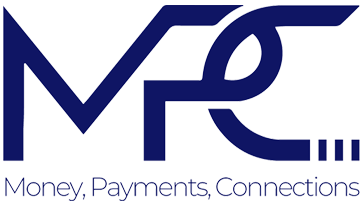MPC Interview with Erin O’Donnell and Michael Beird, The American Cannabis Banking Association (ACBA)
Please state your names, title, company, and email address to provide to prospective partners and customers interested in receiving more information.
Erin O’Donnell, Chairman of the Board, American Cannabis Bankers Association, Erin@TheACBA.org
Michael Beird, Vice Chairman, American Cannabis Bankers Association, Mike@TheACBA.org
How are you different than other brands in your space?
There are currently few associations or firms focused and dedicated to bringing unbiased, objective education to the banking industry on cannabis banking. The ACBA does not sell software, consulting, or other ancillary products or services. Instead, we provide education from different perspectives that enable professionals on both the banking AND cannabis sides to better understand what they need to know in order to not just ‘survive’, but actually THRIVE in the years ahead. Furthermore, we are committed to supporting companies that are majority women and minorities owned, as we see over and over again at conferences and gatherings that these small businesses often miss many of the critical opportunities and information that can make them successful in their growth
How would you describe your value proposition to prospective customers and channel partners?
Our memberships are enterprise-wide to financial institutions that join. This means that their value starts with a single annual membership that opens the door to webinars, on-demand certifications, networking, research and much more. Furthermore, our affiliate partners have a large educational resource that they can promote to their partners, clients and prospects which enhances their value proposition but keeps their price point and overhead unchanged by allowing them to stay focused on what they do best, while offering training developed by leading subject matter experts in the industry.
What recent challenges have your company’s leadership faced and how did you overcome them?
Without SAFE banking, getting payments processed even by Tier 3, non-plant touching, education associations like ACBA, has been difficult. The Founders of the ACBA have had their payments gateway closed, despite our mission of simply being an association focused on educating Federally-insured institutions on Federal regulations and guidance such as the Cole Memo. Despite that, the Founders of ACBA, like thousands of other companies in this space, continue to face restrictions and discrimination from the major payments networks and providers, giving us a critical point on which we can relate to our members.
What recent milestone have you achieved and why is it significant?
The partners of the ACBA have just sealed a book deal with Wiley Publishers to author the industry’s definitive guide on Cannabis Banking, due out in Q1, 2025! This has already caught the attention of others affiliated with the industry and is intended as a guide not just for professionals in this space, but is being targeted as a critical resource for US colleges and universities seeking to offer programs, certificates and degrees on cannabis education in the future.
What near-term opportunities has 2023 presented to you and your team?
The most significant opportunities coming out of 2023 was the ACBA launch in October on stage at the Money 20/20 conference in Vegas to kick off the conference’s new Cannabis track. That launch is what led to the Wiley book deal, as well as building opportunities in our home state in 2024 with the New Mexico Cannabis Chamber of Commerce and Better Business Bureau. This fast visibility and exposure portends greater opportunities to expand the ACBA offerings to banks, credit unions, cannabis businesses, and many more potential members in the year(s) ahead.
What’s a key trend for your industry as 2023 winds down, and why do you think it’s important?
The biggest trend in cannabis banking for 2023 going into 2024 must be the proliferation of bills in BOTH houses of Congress dealing with various approaches to safe-guarding financial institutions who already have, or are considering going into, the cannabis industry. While there is NO guarantee for passage of the SAFE or SAFER banking acts, or even the rescheduling of cannabis to a Schedule 3 drug under START, this is clearly the most significant trend impacting everyone directly, or indirectly, involved with bring some safety and protection to bridging the gap between cannabis and banking.







